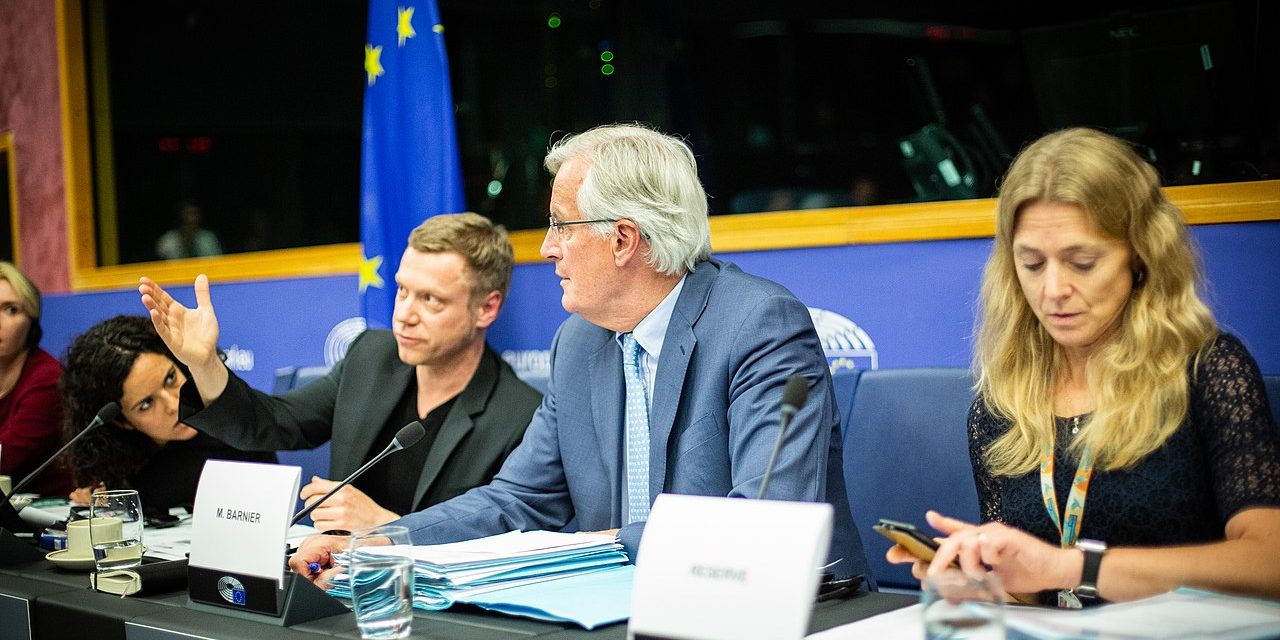 While the UK’s draft settlement on its EU membership includes substantive changes, its symbolic value is even more important, writes Anthony Salamone. Should the draft be agreed and the UK vote to remain, it could find itself facing animosity from other Member States and less influence in the EU.
While the UK’s draft settlement on its EU membership includes substantive changes, its symbolic value is even more important, writes Anthony Salamone. Should the draft be agreed and the UK vote to remain, it could find itself facing animosity from other Member States and less influence in the EU.
The publication of the UK’s draft EU settlement marks another milestone in the refashioning of its relationship with the EU. The proposals – which remain to be agreed in the European Council and thus could change – are noteworthy for their comprehensive and exacting nature. They represent a new mode of engagement between a Member State and the EU.
As I have written previously, this is the first time a Member State has unilaterally sought a renegotiation of its own terms of membership. This draft deal is not a means of accommodating a country trying to ratify an EU treaty (like Denmark with Maastricht or Ireland with Lisbon). Nor is it inherently in response to a particular policy change at European level. It is the product of national politics and the implementation of a manifesto pledge.
The ramifications for the EU of this unilateral approach remain unclear. How long before the novelty wears off and other countries seek their own individual settlements? Some will suggest that such a prospect is unlikely and that the UK is a special case. However, other Member States have opt-outs, protocols and reservations in their favour – having opt-outs does not in itself make a Member State unique.
It is true that the likelihood of another state (particularly a less influential one) succeeding in winning its own EU settlement is marginal. Nevertheless, the argument could be made, and refusal to accept it might damage the EU’s legitimacy. More to the point, how could Britain seriously stand in the way of another country following in its footsteps?
Setting a precedent
The draft deal would make a number of substantive changes to the EU’s architecture. If agreed, the potential qualifications of the free movement of workers would be ground-breaking. Over time, the implications of such a move could certainly be wider than the drafters ever intended.
Other measures are important but less radical, such ‘taking account’ of opposition by national parliaments to EU legislative proposals on grounds of subsidiarity. Agreement to eventually attach a protocol to the EU treaties clarifying that ‘ever closer union’ does not equate to obligatory political integration for the UK is less substantive.
Regardless of the meaning of creating ‘an ever-closer union of the peoples of Europe’, the UK would have always had a say in any treaty change, and if it did not want to take part a significant new EU initiative, it would surely have received an opt-out, as it has always had before.
More importantly, the eventual settlement will carry a strong symbolic value. It attempts to codify the UK’s EU membership, listing all the opt-outs it already holds, such as on Economic and Monetary Union, the Schengen acquis and parts of police and judicial cooperation. It singles out specific elements of one country’s relationship with the EU – a sort of bespoke terms and conditions of membership. This kind of agreement runs counter to how the EU has always worked before.
Moreover, such differentiation would set the UK apart from the other Member States. The UK will not help Eurozone countries in financial crisis (who presumably will not be lining up to help the UK if it ever needed it). It will not treat EU workers equally under certain circumstances. In short, it will not participate in much of what the EU is meant to be about.
Lasting resentment

This arrangement would likely sap much of the goodwill from the UK’s EU membership. It is understood, and accepted, that the UK will not partake in particular elements of European integration. However, coldly stating the fact, codifying it and adding on to it are unlikely to endear Britain to the rest of the EU. It moves in the direction of reducing the UK’s membership to a transactional relationship between it and the other EU Member States.
The EU has always been about more than transactions, even for countries largely averse to political integration. Presuming the deal is agreed, it will have broader implications for the UK’s place in the EU. It has the potential to generate sizeable ill-will from the other Member States, which will have compromised much for the UK. It could also damage the UK’s long-term influence in the EU. If countries perceive the UK as semi-detached from the Union, they may not take it and its views as seriously as they would have otherwise.
All of this is of course predicated on the settlement being agreed and the UK subsequently voting to remain in the EU. Should Britain instead vote to leave, it will perhaps not be off to the best start in the withdrawal negotiations, having just wasted the other Member States’ time in reaching a now void settlement that concedes much of what is important to them about the EU.
This post represents the views of the author and not those of BrexitVote, nor the LSE.
Anthony Salamone is PhD Candidate in British and European Politics at the University of Edinburgh. He is also Managing Editor of European Futures.







The inescapable problem is that Britain is already isolated.
Britain is not a member of the decision making body, the Euro Area [Euro zone single currency area].
The zone of 19 member stares meet together, take policy decisions together, vote en bloc in the 28 member state EU & Britain is isolated yet again.
Either Britain joins the Euro zone [God forbid] or Britain leaves the EU.
Yes the position will be that Britain will be resented – for a time. We will put up with that.
The zone owns the EU & we will come back to that hard fact time & time again.
Really we will lose influence? Don’t make me laugh we never had any influence. Deals are done behind closed doors to give the illusion of solidarity. Member states that disagree are told it’s a done deal far better to be shown in the text as being in agreement with the EU than to be declared as the country made to sit on the naughty step. We know the EU needs the UK for it’s CSDP & EEAS for the simple fact that we the UK has a permanent seat on the UN security council with a veto & we have the only credible military that can project force globally we are also a member of the G7, G20. Members of the Commonwealth, members of the Five Powers, members of the Five Eyes Members of the World Bank, the IMF, the AIIB & we maintain our commitment to development aid. We contribute Net £13 Billion to the EU to subsidise the failed economies of other member states & top it off if we leave the EU we will get see return of our WTO seat! Not a bad place to be in the world?